McNeal Law Group
In today’s complex legal landscape, navigating challenges such as estate planning, business litigation, probate, and family law requires expert guidance. Individuals and businesses alike need a reliable lawyer who can provide personalized legal advice, clear communication, and accessible support. Whether facing disputes related to real estate, corporate matters, domestic violence cases, or disputes regarding contracts and asset protection, a local attorney can be an indispensable asset. This article explores the multiple facets of selecting the ideal local attorney and why having a trusted legal ally impacts every aspect of legal representation. With an ever-growing list of legal complications—from issues concerning prenuptial agreements and Medicaid planning to disputes involving trust lawyers and estate planning attorneys in your area—making an informed decision early on can prevent costly litigation and safeguard your interests. The following sections provide an in-depth guide on evaluating your legal needs, selecting a competent legal representative, and optimizing communication with your attorney, all while ensuring cost transparency and reliability. As the legal terrain continues to evolve amid rapid legislative changes in areas like immigration, domestic disputes, and corporate law, a local legal expert’s intimate knowledge of state laws, court systems, and professional networks remains more important than ever. Let this article serve as both a comprehensive roadmap and an essential checklist for choosing the right attorney near you to protect your legal future.
Find a Trusted Local Attorney to Guide You in Legal Matters

Engaging a trusted local attorney is the first step toward ensuring smooth legal proceedings. A local attorney who understands the nuances of regional laws and the inner workings of nearby court systems can offer direct benefits in areas ranging from estate planning and probate to business litigation and asset protection. The central role of a local attorney is to provide tailored legal advice and representation, ensuring that your unique circumstances—whether related to real estate disputes or domestic violence cases—are appropriately addressed. Their proximity means a personal touch in handling sensitive matters like family law, prenuptial agreements, or even complex issues such as Medicaid planning and trust administration.
Understand the Role of a Local Attorney in Your Case
A local attorney is not only a legal advisor but also a strategic partner who offers guidance throughout every phase of your legal issue. Their responsibilities include reviewing case facts, advising on appropriate legal remedies, and representing clients in negotiation and litigation. For instance, when dealing with issues like gift tax complications or business litigation in Illinois or Connecticut, your attorney’s in-depth local expertise can make all the difference. They help clients understand complicated legal jargon, create actionable strategies, and work diligently to secure favorable outcomes. Their role often extends beyond court appearances; they facilitate mediation and negotiation sessions that may resolve disputes out of litigation, thereby saving clients time and money.
Research Background and Reviews of Potential Attorneys
The process of selecting a lawyer begins with thorough research. Prospective clients should investigate the lawyer’s background, including past case histories, areas of specialization, and success rates. Online reviews and testimonials from clients offer insight into a lawyer’s reputation regarding responsiveness and client service. Websites maintained by state bar associations and legal directories provide additional verification of credentials and disciplinary records. When a matter involves sensitive issues like domestic violence or child custody in states like Pennsylvania or West Virginia, verifying a lawyer’s local expertise and client feedback is especially critical. Moreover, verification of membership in professional organizations such as the state bar association further builds trust. This multifaceted research ensures that you engage a qualified attorney who demonstrates both legal acumen and ethical standards.
Schedule Consultations to Assess Compatibility
An essential step in the hiring process is the consultation, during which clients can directly evaluate a lawyer’s communication style, approach, and compatibility with their needs. Scheduling consultations at local law offices or via virtual meetings provides an opportunity to ask preliminary questions about the attorney’s strategy for cases involving complex issues like asset protection, trust administration, or even intricate corporate law matters. This meeting also allows clients to gauge whether the lawyer understands their unique circumstances—be it questions concerning inheritance tax in New Mexico or disputes over real estate valuation in Colorado. Having an open dialogue and establishing a rapport early on is a strong indicator of future satisfaction and legal success.
Prepare Questions to Ask During Your Meeting
When meeting a potential attorney, it is vital to have a list of carefully prepared questions. Inquiries should address previous experience with similar cases, understanding of local laws, billing practices, and evidence of effective communication in related legal matters. Questions such as “What is your strategy for handling disputes related to estate planning services?” or “Have you represented clients in cases involving prenuptial agreements or family law issues in this region?” help clarify whether the attorney is the right fit for your needs. Clients should also ask about strategies for resolving issues amicably outside of court, as this can be particularly advantageous in cases of business litigation and probate. This preparation acts as a diagnostic tool, ensuring that the subsequent representation is both competent and compatible with client expectations.
Review Fees and Payment Options Before Committing
Understanding the attorney’s fee structure is crucial before entering into an agreement. Different legal matters may require varied billing arrangements, such as hourly rates for corporate litigation, flat fees for standard estate planning, or contingency fees in personal injury cases. An upfront discussion regarding costs ensures transparency and mitigates the risk of unexpected charges later. Clients should explicitly inquire about additional costs related to court filing fees, expert witness fees, and other expenses. For example, if you require legal counsel for a lawsuit involving complex issues like tax avoidance or liability disputes in states such as South Carolina or Maryland, scrutinizing all cost elements is essential before signing a retainer agreement.
Consider Recommendations From Friends or Family
Personal recommendations remain a powerful tool in choosing the right attorney. Friends, family, or business associates who have successfully navigated legal challenges can provide real-world insights into the lawyer’s performance and reliability. Such referrals tend to highlight attorneys who excel in customer service, empathize with clients, and deliver successful outcomes in difficult cases. Whether you are facing a dispute over a business contract or require assistance with real estate litigation near your area, testimonials from trusted contacts are invaluable. These recommendations serve as practical endorsements, distilling seconds of legal experiences into crucial tips for future cases.
Assess Your Legal Needs to Choose the Right Attorney

Choosing the right lawyer is contingent on a clear understanding of your legal needs. Clients must first assess their specific issues—ranging from estate planning and probate management to litigation involving real estate and domestic violence—so that they can match their case to a lawyer’s expertise. Accurate self-assessment prevents unnecessary expenses and ensures that emerging issues, like disputes over trust administration or business litigation, are handled by professionals familiar with the specific laws of your region. This section provides an in-depth look at how to evaluate your legal requirements and align them with the competencies of potential attorneys.
Identify the Type of Legal Assistance You Require
The first step toward selecting the right attorney is identifying your precise legal needs. Legal matters can vary significantly, from the simple drafting of a will or handling a gift to complex cases involving large-scale business litigation or disputes over real estate valuation. For example, an individual dealing with probate issues, such as inheritance disputes or estate planning challenges, requires a lawyer with specialized knowledge in probate law and estate administration. Similarly, if you are facing a lawsuit or contract dispute in a competitive market like corporate law, you need an attorney well-versed in business litigation and experienced with complex negotiations. Clarifying these distinct needs helps narrow the search and ensures that you work with an attorney who possesses the specific skill set relevant to your case.
Clarify the Complexity of Your Legal Issue
Legal problems differ not only in their subject matter but also in their level of complexity. Consider whether your case involves multiple parties, cross-jurisdictional legal issues, or overlapping areas of law such as immigration, domestic violence, or real estate litigation. A higher degree of complexity, such as issues involving Medicaid planning or estate tax intricacies, necessitates working with an attorney who has considerable experience and proven success with multifaceted legal challenges. Complex cases often require a thorough review of documentation, expert testimonies, and the formulation of strategic intervention plans—functions that an experienced attorney is well-equipped to manage. A clear understanding of your case’s complexity streamlines the selection process and prepares you for potentially prolonged legal proceedings.
Match Your Need to the Attorney’s Area of Expertise
After assessing the nature and complexity of your legal issue, it is essential to match these needs to a lawyer’s specific area of expertise. Attorneys tend to specialize in particular fields, such as estate planning, corporate law, probate, or family law. For instance, if your primary concern involves estate planning and inheritance matters, hiring an estate attorney who is familiar with the evolving regulations related to tax exemptions, wills and trusts is crucial. Similarly, if your legal issue is centered around business litigation, selecting a lawyer who has represented clients in similar disputes in your state or region is imperative. Verification of specialization through credentials, certifications, and affiliations with recognized bar associations strengthens confidence in the lawyer’s capability to address your issue effectively.
Discuss Potential Outcomes and Strategies in Your Case
Before making a final decision, it is both prudent and necessary to discuss realistic outcomes and strategies with your potential attorney. Transparent dialogue on possible outcomes—ranging from settlement negotiations in a contract dispute to aggressive litigation in cases of real estate attorney disputes—helps set clear expectations. Clients should ensure that the attorney’s proposed strategy aligns with their goals, whether it is favoring a quick resolution, pursuing in-depth litigation, or negotiating a structured settlement. An attorney’s ability to articulate potential obstacles and alternative strategies conveys not only their expertise but also their readiness to adapt to unforeseen legal challenges. For complex cases, such as those involving business litigation or disputes over estate assets, detailed strategy discussions provide an early blueprint for success.
Learn About Any Specialized Credentials or Certifications
A qualified attorney may possess specialized credentials or certifications that underscore their expertise in specific legal matters. These qualifications may include board certifications in probate law, membership in specialized bar sections, or recognition from reputable organizations such as the American Bar Association. Such credentials offer independent verification of an attorney’s skills in handling niche legal issues and can be a decisive factor when selecting legal counsel. For example, if you are managing an estate that includes diverse assets or facing litigation related to asset protection and trust administration, having an attorney with advanced certifications can enhance your chances of a positive outcome. Asking for documentation or verifiable proof of specialized training is a proactive measure that helps solidify your decision.
Evaluate Communication Styles and Availability
Effective legal representation relies on open lines of communication. It is essential for clients to select an attorney whose communication style meets their expectations. During initial consultations, note if the attorney listens attentively, explains legal concepts in understandable terms, and makes you feel comfortable when discussing sensitive matters. Consistent and transparent communication is particularly crucial when handling time-sensitive issues such as probate, domestic violence cases, or urgent litigation regarding business matters. Additionally, considering an attorney’s availability—especially if you foresee prolonged legal proceedings—is key for maintaining a productive and stress-free working relationship. Ultimately, aligning communication expectations with the lawyer’s approach ensures that you remain informed and engaged throughout your case.
Understand the Benefits of Hiring a Local Legal Expert

Hiring a local legal expert offers distinct advantages that can greatly impact the outcome of your case. These benefits include deep knowledge of state-specific laws, established networks within the local court system, and the personal touch that only proximity can afford. Local attorneys provide not just legal representation but also a targeted understanding of local issues—ranging from estate planning challenges and probate complexities to disputes involving real estate, domestic violence, and business litigation. Their familiarity with local judicial tendencies and procedural nuances is an invaluable asset when navigating highly specific cases. This section outlines why leveraging local expertise is beneficial for clients seeking comprehensive legal help.
Gain Insights Into Local Laws and Regulations
Local attorneys possess intricate knowledge of the laws and regulations specific to the region in which they serve. Such insights can be particularly important for clients involved in cases that depend on local legal precedents, such as disputes over property valuation, tax avoidance issues, or probate administration. When dealing with complex legal matters like corporate law, estate planning, or asset protection, understanding local regulations provides a strategic advantage that can result in more favorable outcomes. For example, attorneys in cities renowned for specialized industries may have unique insights about regulatory changes that affect real estate, business litigation, or Medicaid planning. By staying up-to-date with these local nuances, a lawyer can ensure that their clients’ strategies are not only compliant but also optimized for the local legal environment.
Leverage Strong Knowledge of the Local Court System
Another notable benefit of engaging a local attorney is their familiarity with the local court system. This includes knowledge of local judges’ tendencies, procedural quirks in filing documents, and the typical timelines associated with specific types of litigation. Whether the legal issue revolves around disputes among family members in probate cases or involves business litigation and contract disputes, an attorney with hands-on experience in the local system can expedite proceedings and enhance trial readiness. Their established relationships with local clerks, mediators, and other professionals can often be harnessed to facilitate smoother case progression and increase the chances of successful resolution. For clients dealing with pressing matters like domestic violence litigation or urgent real estate attorney disputes, this familiarity can reduce delays and optimize resource allocation.
Build a Personal Relationship for Better Guidance
When you work with a local attorney, you establish a close personal relationship that fosters trust, transparency, and effective communication. This relationship facilitates a deeper understanding of your unique legal issues, whether they pertain to estate disputes, business litigation, or contracts and liability. A personal relationship also allows the attorney to become intimately acquainted with your goals and priorities, ensuring that the legal strategy aligns with your values and long-term objectives. Over time, this relationship can translate into greater commitment and personalized legal service, as the attorney is more invested in your overall well-being and satisfaction. Personal rapport is especially crucial for sensitive matters such as family law, custody disputes, and estate planning decisions where trust is a significant component of the legal process.
Access Immediate Support for Urgent Legal Issues
Local attorneys provide the advantage of immediate access, which is vital when facing urgent legal challenges. In emergencies, such as domestic violence incidents, sudden probate disputes, or unexpected litigation regarding business matters, being able to quickly secure legal counsel is crucial. A local lawyer can often meet with you on short notice and provide critical legal advice during pivotal moments. This immediacy not only reduces potential harm but also ensures that important case evidence is preserved and that legal deadlines are met without delay. The accessibility of a local legal expert is a key consideration for clients who value the responsiveness of their attorney during times of crisis.
Benefit From a Network of Local Professional Contacts
A seasoned local attorney typically maintains a robust network of professional contacts, ranging from expert witnesses and court reporters to other lawyers and specialists in various fields. This network can prove instrumental in complex cases involving intricate details like asset valuation, trust administration, and business litigation. For example, when dealing with high-stakes probate or disputes over real estate transactions, the attorney’s connection with local appraisers, investigators, and experts can significantly strengthen your case. This network also allows for a more comprehensive approach in assembling evidence, ensuring that all aspects of the case are addressed by relevant experts. Consequently, hiring a local attorney not only secures individual expertise but also taps into a broader resource pool that can improve overall case outcomes.
Local Attorneys May Offer More Personalized Attention
Finally, local attorneys have the ability to offer highly personalized legal service that is often not available from larger, multi-regional firms. Their smaller client base allows them to dedicate more time and attention to each case, ensuring that every detail is meticulously managed. This personalized approach addresses the client’s concerns on a granular level and adapts strategies as necessary to meet unexpected challenges—be it resolving disputes regarding trust administration or overcoming obstacles in business litigation. Clients benefit from this tailored service, which includes ongoing updates, continuous feedback, and the ability to make adjustments in real time. In summary, the benefits of hiring a local legal expert extend far beyond routine legal representation, offering a multifaceted support system that can be the difference between a favorable outcome and prolonged legal challenges.
Discover How to Communicate Effectively With Your Attorney

Effective communication is the cornerstone of a successful legal relationship. When working with a local attorney, establishing clear communication protocols ensures that every aspect of your legal case—ranging from estate planning and probate disputes to business litigation and asset protection—is handled efficiently. This section outlines actionable strategies to foster transparent communication, maintain a record of relevant information, and ensure that both parties are aligned on the overall objectives of the case. Timely responses, clear expectations, and the use of modern document-sharing tools can help bridge any gaps between legal representation and client needs.
Set Clear Expectations on Communication Frequency
The first step in ensuring effective communication is establishing how often and through what channels updates will be provided. Clients should discuss what constitutes urgent matters and determine a schedule for periodic progress reports on issues such as trust administration, estate planning, or litigation matters. Setting these expectations upfront minimizes the risk of miscommunication and ensures that critical developments do not go unnoticed. For instance, during high-stakes negotiations involving prenuptial agreements or business litigation, knowing that you can expect updates via email or phone calls at designated intervals helps maintain confidence and builds trust between you and your attorney. An understanding of preferred modes of communication and response times also reduces potential delays in decision-making during time-sensitive situations.
Share All Relevant Information Transparently
For an attorney to effectively strategize and manage your legal case, it is imperative to provide all relevant information without withholding critical details. Whether the matter involves nuances in estate planning or specific financial documents related to asset protection, full disclosure ensures that the attorney can build a robust case. Transparency is crucial in areas where incomplete information can lead to missteps, such as litigation involving contract disputes or inheritance complications. Clients should prepare comprehensive summaries of events, timelines, and all relevant documentation, including those addressing disputes involving real estate or business contracts. This openness not only facilitates a more accurate legal diagnosis but also enhances the attorney’s ability to recommend appropriate legal strategies.
Listen for Legal Terminology and Ask for Clarification
Legal language can often be complex and intimidating, especially when dealing with intricate matters like probate law, tax law, or corporate litigation. It is essential for clients to actively listen during conversations with their attorney and ask for explanations or clarifications whenever needed. Understanding key legal terms ensures that you remain engaged and can make informed decisions regarding your case. For example, if an attorney uses specific terminology related to trust administration or business litigation strategies, asking for simple explanations can bridge any knowledge gaps. This approach not only demystifies the legal process but also deepens the client’s involvement, which is critical when final decisions affect issues such as estate planning fees or liability in contractual disputes.
Establish a Protocol for Document Sharing
A well-defined protocol for document sharing is critical to maintaining an efficient workflow. Clients and attorneys should agree on secure methods for sharing sensitive materials, such as wills, trust documents, relevant correspondences, and financial records. Electronic document management systems or encrypted email servers can facilitate seamless transfers and maintain the integrity of the files. This system is particularly useful for ongoing cases that require frequent updates and amendments, such as evolving custody disputes, business litigation updates, or adjustments to estate planning strategies. Establishing standardized procedures for uploading, reviewing, and revising documents minimizes errors and ensures that both parties are always working from the most current information.
Stay Informed About Case Progress Regularly
Regular updates on case progress are an integral part of effective communication between you and your attorney. Clients should request periodic progress reports that detail recent actions taken, upcoming deadlines, and any challenges encountered along the way. Whether your case involves probate delays, real estate attorney negotiations, or business litigation hurdles, staying informed allows you to adjust your expectations and strategies accordingly. Proactive communication can also prompt timely interventions when unexpected issues arise, thereby safeguarding your interests. Consistent progress updates help build confidence and reinforce the partnership between the client and the attorney, ensuring that every stage—from the initial consultation to final resolution—is adequately monitored and managed.
Address Concerns or Changes in Your Situation Promptly
Finally, effective communication includes the active management of changes or concerns that may impact your legal case over time. Life events such as changes in financial status, marital status, or new information regarding an ongoing litigation or estate plan should be communicated to your attorney as soon as possible. Promptly addressing these changes allows your attorney to adjust strategies as necessary. Whether the adjustment impacts a business litigation strategy, alters the dynamics of a domestic dispute, or affects probate proceedings, timely communication ensures that your legal representation remains responsive and adaptive. By proactively sharing updates and addressing potential issues, you strengthen your legal position and help your attorney provide the most effective and personalized guidance possible.
Evaluate the Cost of Legal Services in Your Area

Understanding and evaluating the cost of legal services is crucial to making an informed decision regarding your legal representation. Legal fees vary widely based on the complexity of your case, the attorney’s level of expertise, and regional differences in cost structures. Whether you are dealing with issues like estate planning, probate disputes, or business litigation, budget considerations play an essential role in your choice of legal counsel. In this section, we delve into the different fee structures, associated costs, and practical strategies for ensuring that you can access high-quality legal assistance without compromising on service quality. Transparent discussions about fees ensure that you are not caught off guard by hidden expenses and that your overall financial plan aligns with your legal needs.
Understand Different Fee Structures Used by Attorneys
Attorneys typically work under several fee structures, including hourly rates, flat fees, contingency fees, and retainer agreements. Hourly billing is common in complex cases involving ongoing litigation or estate administration, where the lawyer charges for every minute spent on the case. In contrast, flat fees may be offered for more standardized services such as drafting a will or handling a straightforward probate matter. For cases involving business litigation, a contingency fee arrangement might come into play, where the lawyer only receives payment if the case is won. Each fee structure has its benefits and drawbacks and may be more suitable for different types of legal work. Clients must understand these distinctions to choose a fee structure that fits within their budget and provides clear financial expectations.
Inquire About Hourly Rates Versus Flat Fees
A direct conversation with your prospective attorney about hourly rates in comparison to flat fees is essential. Legal matters vary significantly—while estate planning often benefits from a predictable, flat fee, litigation and complex probate cases may incur hourly charges that add up quickly. Discussing these cost differences early in the selection process helps you forecast the total expense and avoid unexpected charges. For example, a lawyer representing business litigation cases might charge between $250 to $500 per hour, whereas a flat fee arrangement for routine real estate document review might be considerably lower and more predictable. Understanding these distinctions helps ensure that your chosen fee structure aligns with your financial planning and legal expectations.
Factor in Potential Additional Expenses for Your Case
Beyond the attorney’s fees themselves, additional expenses often arise during legal proceedings. These may include court filing fees, costs for expert witnesses, document processing fees, and even travel expenses if in-person court appearances are necessary. For instance, cases involving complex probate or estate issues may require expert opinions on asset valuations, adding to the overall cost. Clients must inquire about these additional expenses during the initial consultation and request a detailed estimate. For any legal matter—whether related to estate planning or business litigation—having a comprehensive understanding of all potential costs helps prevent financial strain over the duration of the case. Budgeting for these ancillary costs is a proactive step toward managing the overall expense while securing high-quality legal representation.
Explore Options for Payment Plans if Necessary
Not every client is in a position to pay the full legal fee upfront, which is why many law firms offer flexible payment options or payment plans. During your consultation, inquire whether your prospective attorney provides alternative billing arrangements that could ease the financial burden. Options may include installment payments, deferred payment arrangements, or sliding scale fees based on income levels. For instance, in cases such as personal injury litigation or estate planning disputes, attorneys may offer a flexible payment plan or even contingency fee arrangements. This flexibility is critical in ensuring that you have access to even the most legally challenging issues without encountering financial roadblocks. Understanding these options allows you to plan accordingly and ensures that monetary concerns do not hinder your access to quality legal counsel.
Seek Clarification on Billing Practices and Transparency
Clear and transparent billing practices are essential for establishing trust and ensuring ongoing communication throughout your legal case. Before entering into a contractual agreement, ask your attorney for a breakdown of how and when you will be billed. This should include details about billing increments, frequency of invoices, and policies regarding additional charges. Transparency in billing practices is important because it prevents misunderstandings in cases involving unexpected legal challenges, whether part of a probate dispute or a business litigation process. A comprehensive review of the retainer agreement and billing practices ensures that you fully understand what to expect financially and that you agree with every term before committing to legal representation.
Compare Costs Among Local Attorneys Without Sacrificing Quality
Finally, it is prudent to compare the legal fees of multiple local attorneys while weighing their expertise and track records. Seek consultations with at least two or three attorneys to understand the range of fees associated with your specific issue, whether it’s a dispute involving estate planning, probate law, or complex corporate litigation. While cost is an important factor, it should be balanced with the attorney’s experience, specialized credentials, and proven success. Remember, the lowest fee does not always equate to the best outcome; sometimes paying a slightly higher fee for an attorney with excellent local knowledge and a strong network can ultimately save you money in the long run by achieving more favorable results. This due diligence process is crucial for ensuring both quality and affordability in your legal representation.
Know When to Change Your Attorney for Better Results

Sometimes, despite initial promising engagements, a client may find that their current attorney is not meeting their expectations. Recognizing when to change your attorney for better results is vital, as continued delays or poor communication can have long-term negative impacts on your case. Whether you’re dealing with matters related to estate planning, probate, or business litigation, the ability to pivot and find a more effective legal partner is essential. This section provides guidance on identifying the early warning signs that may necessitate switching attorneys, strategies for a smooth transition, and the potential benefits of finding a new lawyer who better aligns with your evolving legal needs.
Recognize Signs of Poor Communication Issues
Poor communication is one of the most common red flags that an attorney may not be providing the level of service required for a successful legal outcome. If you notice significant delays in responding to emails or phone calls, a lack of clarity in updates regarding your case, or missed deadlines, these are strong indicators that your attorney may be overwhelmed or not fully invested in your case. In situations like these, particularly in matters involving time-sensitive litigation such as domestic violence cases or real estate disputes, ineffective communication can lead to missed opportunities or detrimental delays. Recognizing these issues early allows you to weigh the necessity of seeking alternative representation that prioritizes transparency and prompt responses.
Assess Your Comfort Level and Trust With the Attorney
An integral aspect of a successful legal representation is the level of trust and comfort you have with your attorney. If you begin to feel that your legal counsel is not listening to your concerns or failing to offer clear explanations regarding case progress, it might be time to re-evaluate the relationship. Trust is crucial, especially when the legal matter involves sensitive issues like family law, estate planning, or business litigation. Feeling uneasy about how your case is being handled can impede informed decision-making and ultimately hinder the achievement of your legal goals. Regular, reassuring interactions and a steady rapport are necessary for maintaining a healthy attorney-client relationship. When this trust erodes, it is a signal that a change in representation might be beneficial.
Determine if There’s a Lack of Progress on Your Case
A stagnant legal case, marked by little to no progress over time, is another clear sign that a change may be warranted. If your attorney is not presenting proactive strategies, scheduling regular updates, or moving your case forward—whether it involves probate proceedings, estate litigation, or complex corporate disputes—it might indicate inefficiencies in the legal handling of your matter. The absence of progress can stem from various issues, including a mismatch between the attorney’s expertise and your specific legal case or insufficient dedication to your case. Evaluate key performance indicators such as court motions filed, settlement agreements negotiated, and communication records to confirm whether your case is receiving the attention it deserves. When progress is lacking, clients should consider exploring alternative legal representation that promises a more aggressive and attentive approach.
Evaluate if the Attorney’s Strategy Aligns With Your Goals
Legal strategies should be dynamic and adaptable, reflecting both the lawyer’s expertise and the client’s evolving goals. It is essential to reassess whether the attorney’s overall strategy continues to align with your objectives, whether those objectives involve resolving a probate dispute swiftly, securing business litigation outcomes, or managing a complex estate plan. If the approach appears stagnant or mismatched with the realities of your case—such as not adequately addressing market changes in valuation or failing to account for evolving regulatory requirements—this might be a strong indicator that a different attorney could better serve your interests. Open discussions about strategy adjustments can sometimes resolve discrepancies, but if disagreements persist, it may be time to change your legal representation for improved results.
Consider Your Attorney’s Availability for Your Needs
Lastly, your attorney’s availability is a critical metric of their capacity to handle your case efficiently. If your legal matters demand urgent interventions—a common scenario in cases involving court deadlines, litigation disputes, or sudden changes in estate assets—and your current attorney is consistently unavailable, it signals a significant shortfall in service. An attorney’s responsiveness not only affects daily communications but also the overall outcome of the case. For sensitive cases such as trust disputes or urgent business litigation, you deserve prompt action and continuous support. If your attorney’s schedule repeatedly conflicts with your need for timely guidance and updates, it is a strong justification to consider transitioning to a lawyer who can better accommodate your case requirements.
Seek a Consultation With a New Attorney for a Fresh Start
When multiple red flags are present—from poor communication and sluggish progress to misaligned strategies and limited availability—it is time to seek a consultation with a new attorney. Consulting with alternative legal experts provides an opportunity to gauge whether a change in representation might lead to better case outcomes. A fresh perspective can often lead to innovative legal strategies and reinvigorated momentum, whether you are managing probate, business litigation, or estate planning issues. By thoroughly reviewing your current legal situation and comparing the strengths of other local attorneys, you empower yourself to choose a representative who is better suited to advance your case. Ultimately, the decision to change attorneys should be seen not as a setback but as a proactive step toward securing legal success and ensuring that your needs are met with the highest standards of professional service.
Frequently Asked Questions
Q: How do I know if my attorney is right for my probate case?
A: If your attorney demonstrates in-depth knowledge of local probate laws, communicates clearly, provides timely updates, and shows a strong track record of success, they are likely a good match. Always review client testimonials and ask for past case examples.
Q: What should I do if I feel my attorney is not communicating effectively?
A: Address the issue directly by scheduling a meeting to discuss communication expectations. If the problem persists, consider seeking a new attorney with a proven record of reliable responsiveness and transparent billing practices.
Q: Can I change my attorney mid-case if I’m dissatisfied?
A: Yes, you can change your attorney. It is important to review your retainer agreement for any termination clauses and discuss the transition process with your current lawyer. Seeking a consultation with a new attorney can provide clarity on next steps without compromising your legal progress.
Q: How do fee structures differ among local attorneys?
A: Fee structures vary widely; many attorneys offer hourly rates for complex litigation and flat fees for routine services like estate planning. Understanding additional expenses such as court fees or expert witness fees is crucial to making an informed decision tailored to your financial situation.
Q: What benefits do local attorneys offer compared to larger firms?
A: Local attorneys provide personalized service, deep knowledge of regional laws and regulations, and a strong network of local professional contacts. This localized expertise, combined with greater accessibility and individualized attention, can be particularly beneficial for time-sensitive and complex legal issues.
Q: What are the signs I need to switch attorneys?
A: Key indicators include poor communication, lack of case progress, misaligned legal strategies, and limited availability. If you consistently encounter these issues, it may be time to consult another attorney for a fresh perspective and better case management.
Key Takeaways
- A trusted local attorney offers expert guidance tailored to regional laws and court procedures.
- Clear communication, transparency, and regular updates are critical for effective legal representation.
- Evaluating fee structures and potential additional costs ensures financial clarity in legal services.
- Personal recommendations and consultations are valuable tools in identifying the right legal expert.
- Recognizing red flags such as poor communication and stagnant progress can signal the need for a change in representation.
- Local attorneys provide a network of professional contacts that can enhance case outcomes.
- A proactive approach to assessing legal needs leads to more personalized and effective legal strategies.
Final Thoughts
Choosing the right local attorney is a critical decision that impacts every facet of your legal representation. By carefully evaluating your legal needs, thoroughly researching potential attorneys, and fostering open communication, you can secure an ally capable of navigating complex issues like estate planning, probate, and business litigation. A trusted local lawyer not only offers expertise and personalized attention but also provides peace of mind during challenging times. Taking proactive steps today can pave the way for more favorable outcomes and lasting legal success.






